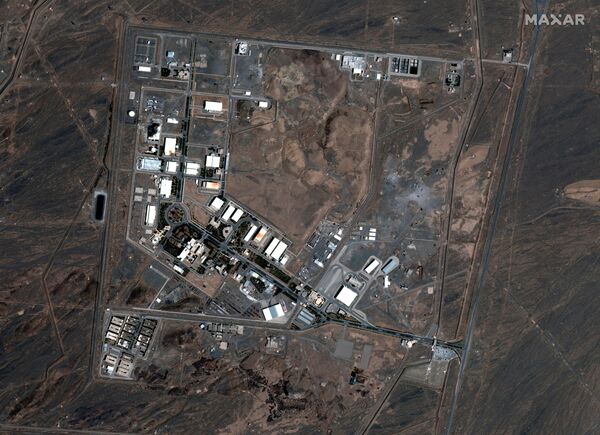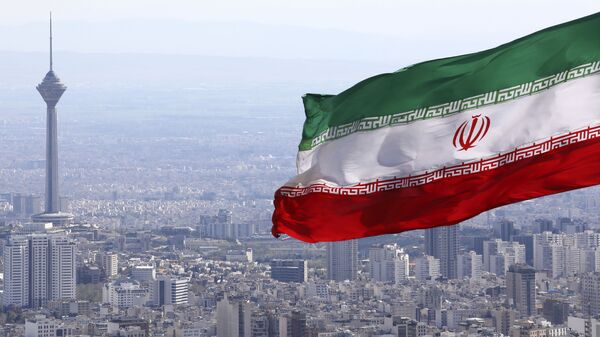Tehran has brushed off as mere ‘yellow journalism’ a recent report in The New York Times about alleged efforts of Iranian diplomats to hint at the Islamic Republic’s ‘insistence’ that the US ‘unconditionally’ rejoin the 2015 Joint Comprehensive Plan of Action (JCPOA), known as the Iran nuclear deal.
Some media pursue a common method, particularly under the current circumstances, to resort to ‘yellow journalism’, Iranian Foreign Ministry Spokesman Saeed Khatibzadeh said on Friday, according to Press TV.
The paper claimed that Iran’s Deputy Foreign Minister for Political Affairs Abbas Araqchi had “tried to pass on to Mr. Biden’s advisers through intermediaries Tehran’s insistence that the United States return to the Iran deal unconditionally before any talks resume.”
The Times noted that the Democratic presidential candidate’s advisers have not confirmed receiving any messages from Iran, and they were resolved to deal with the issue only after Biden’s potential inauguration.
The Iranian Foreign Ministry spokesman noted that Iran’s representative office in New York had denied any kind of “direct or indirect contact” between Iranian and American diplomats. Khatibzadeh slammed the “totally fake” report and predicted that the paper would continue to circulate even more fabricated news.
US-Iran: The Road Ahead
The New York Times reported on 17 November that projected President-elect Joe Biden had pledged to move to rejoin the nuclear deal with Iran, under the condition that Tehran also comes back into compliance.
The outlet had suggested that while Joe Biden’s campaign pledge pleased the deal’s other signatories, who had been highly critical of Donald Trump’s decision to exit the agreement two years ago, citing Iran’s alleged violations of its terms, current politics might render a return to the way things were extremely difficult.

The publication underscored incumbent President Donald Trump’s anxiety ramping up American sanctions against Iran and selling advanced weapons systems to its regional foes ahead of a possible reelection bid loss.
For a potentially incoming new president these policies might be hard to reverse, writes The New York Times.
On the other hand, in Iran, where President Hassan Rouhani faces opposition from conservatives in elections slated for June 2021, a high price is anticipated to be asked in return for the readmission of the US to the deal.

According to the NYT, this might include the immediate lifting of crippling sanctions imposed by the Trump administration and billions of dollars in compensation.
Meanwhile, projected president-elect Joe Biden has said that the international system is "coming apart at the seams", and vowed to salvage America's reputation "There will be no time to lose," he wrote in Foreign Affairs magazine earlier this year, with a pledge to rejoin the 2015 Iran nuclear deal - the Joint Comprehensive Plan of Action (JCPOA).
Trump Accelerates Tough Iran Strategy
US President Donald Trump, a fervid critic of the landmark deal, unilaterally withdrew from it in May 2018, unleashing the “toughest ever” sanctions against the Islamic Republic.
The current POTUS has two months left in office if his team’s efforts to contest the 2020 presidential election results fall through, as Democratic contender Joe Biden has been projected the winner by most US media outlets.
Amid frenzied litigation over the alleged election fraud, Trump’s administration has been moving swiftly to impose more sanctions against Iran. US academics have stated that the White House's potential strategy to take "irreversible" measures against Tehran seeks to put up insurmountable obstacles to restoring the Iran nuclear deal.
A fresh batch of sanctions was announced by the US Treasury Department on 18 November, while US Secretary of State Mike Pompeo has released a statement entitled "The Importance of Sanctions on Iran".
The Maximum Pressure campaign against the Iranian regime continues to be effective. It deprives the regime of funds to carry out its malign activities. Reducing that pressure is a dangerous choice, bound to weaken new regional partnerships for peace and strengthen the regime.
— Secretary Pompeo (@SecPompeo) November 18, 2020
Pompeo warned that any attempt by a potential successor to undo the Trump administration's anti-Tehran restrictions would be "a dangerous choice".
The recent sanctions target Iran's Mostazafan Foundation and some 160 of its subsidiaries allegedly linked to the country's Supreme Leader Ayatollah Ali Khamenei. Alleged issues of human rights are cited as the reason for further sanctions targeting Iran’s Intelligence Minister Mahmoud Alavi and a number of other individuals.


